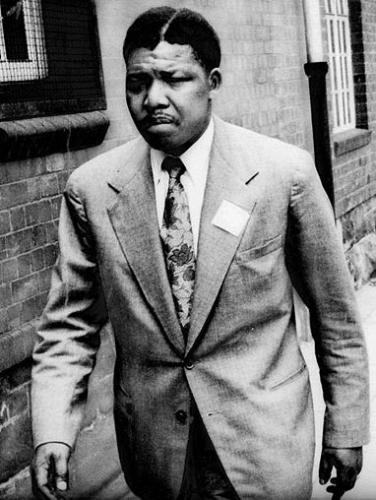 transformation
transformation The Question We Should Be Asking About Mandela
 Wednesday, December 11, 2013 at 09:53AM
Wednesday, December 11, 2013 at 09:53AM  His body lies in state at Pretoria. World leaders assembled in Johannesburg, along with tens of thousands of citizens, to celebrate the life of Nelson Mandela. A great man has died and the world took note, mixed with wonder: young Mandela was jailed for violence against an unjust regime, and emerged 27 years later without anger or a thirst for vengeance.
His body lies in state at Pretoria. World leaders assembled in Johannesburg, along with tens of thousands of citizens, to celebrate the life of Nelson Mandela. A great man has died and the world took note, mixed with wonder: young Mandela was jailed for violence against an unjust regime, and emerged 27 years later without anger or a thirst for vengeance.
It’s been instructive to watch the world’s reaction. Mandela’s life has been celebrated—and properly so! Still, leaders and pundits alike have referred to Mandela’s peaceful and forgiving leadership as “miraculous,” as if the man himself had no choice in his transformation. The celebration is over, and now he lies in state. It’s a time for reflection. The one question we should be asking about Mandela is how did he change?
Young Mandela had lost patience with the way of Ghandi and Dr. King. He was ready to take action. “We considered four types of violent activities,” Mandela said in his autobiography. “It made sense to start with the form of violence that inflicted the least harm against individuals.” Still, it was the path of violence. Many revolutionaries have chosen “measured” violence only to find themselves on a spiral staircase of harm.
Mandela’s long walk included heart change. It was not an accident. It was a considered choice. He was the master of those choices. The prison system could inflict harm on his body, but Mandela could still care for his soul.
Robyn Dickey’s insightful reflection in the L.A. Times observes:
Robben Island left him damaged. But without the years of self-examination and meditation — seeing positive things in his darkest hours — Mandela might never have become such a remarkable leader after he walked free.
"At least, if for nothing else," he wrote in a 1975 letter to his wife, "the cell gives you the opportunity to look daily into your entire conduct, to overcome the bad and develop whatever is good in you.
"Never forget that a saint is a sinner who keeps on trying."
Mandela was a pragmatist, and that ability led him to care for his heart. The lesson for Students of Jesus is simply this: if a man, alone, left to his own resources can change and grow during 27 years of prison, how much more should we, who have the resource of the Spirit of God? Mandela's life teaches us about the nature of transformation: we have a role to play--and after we do our part, the resources of heaven can indeed turn us into miraculous brothers and sisters of Jesus.
References (3)
-
 Response: Brandon ColkerThe Question We Should Be Asking About Mandela - Home - studentsofjesus
Response: Brandon ColkerThe Question We Should Be Asking About Mandela - Home - studentsofjesus -
 Response: Brandon ColkerThe Question We Should Be Asking About Mandela - Home - studentsofjesus
Response: Brandon ColkerThe Question We Should Be Asking About Mandela - Home - studentsofjesus -
 Response: Brandon ColkerThe Question We Should Be Asking About Mandela - Home - studentsofjesus
Response: Brandon ColkerThe Question We Should Be Asking About Mandela - Home - studentsofjesus


Reader Comments (1)
"we have a role to play--and after we do our part, the resources of heaven can indeed turn us into miraculous brothers and sisters of Jesus".
Many believers ( it seems) do not think that they have any significant role to play in their maturity. We understand that the Holy Spirit does the work but we need to provide the devoted heart, our love for God, and our desired obedience in response to God's word.
Perhaps Mandella received the 'indescribable gift' while in prison. Humbleness that changes into greatness within the hand and power of God.